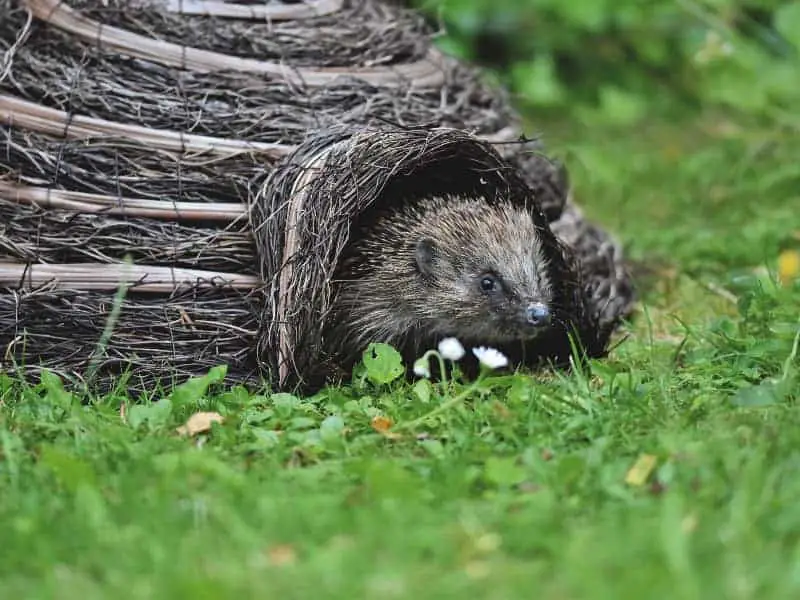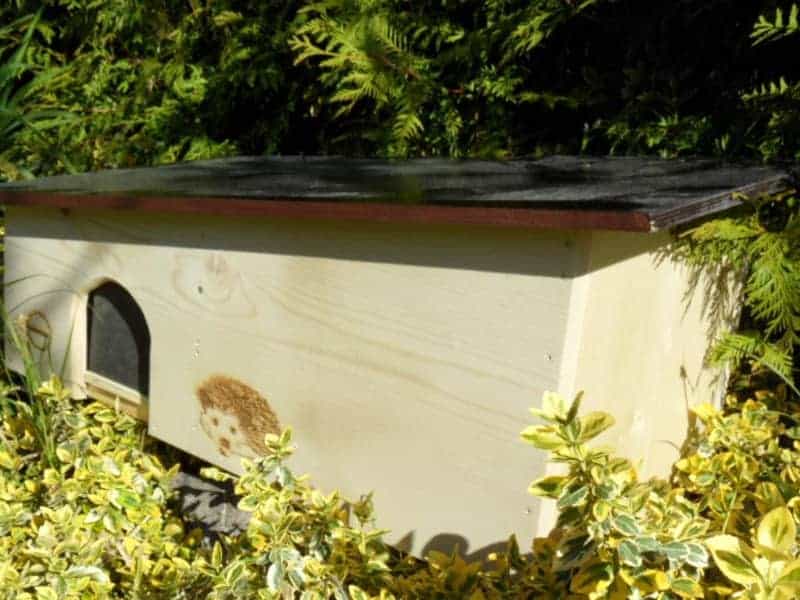
Coughing hedgehog
Coughing hedgehog discovered in your own garden. You are probably asking yourself what you can do. The coughing hedgehog is most likely suffering from lung worms. Nowadays almost every hedgehog suffers from this. The reason for this is a lack of insects. The Hedgehogs eat snails in their distress and worms. These in turn are intermediate hosts for the Lungworms.
Coughing hedgehog more symptoms
Coughing alone is not enough to tell whether the hedgehog is actually ill. Further symptoms are therefore the apathetic behavior and a kind of emaciation. You can recognize this by an indentation on the head, the so-called hunger fold. Furthermore, the hedgehog has protruding hip bones and sunken and slit eyes. In addition, there is green and slimy Feces, diarrhea, bleeding from the mouth or anus, and balance problems or paralysis.
It is really bad when the hedgehog has pus-filled pustules, the spines fall out, he trembles, suffers from cramps or his legs are swollen. The coughing hedgehog usually suffers not only from lungworms, but in many cases also from intestinal tapeworms and coccidia. The cough in the hedgehog may also be the result of a bacterial infection.
How can you help the coughing hedgehog?
In the strict legal sense, a coughing hedgehog is not in need of help. Of course this only applies if the hedgehog coughs occasionally. In most cases hedgehogs cope well with a certain number of lung worms, so no help is really needed from your side.
If you want to combat lungworms and have the hedgehog wormed by a vet, there are a few things you need to bear in mind. Immediately after taking the last worming medication, the hedgehog must not go into hibernation for at least a week. This means that if you take in the coughing hedgehog that has been dewormed now, you will have to feed him through the rest of his active time.
You may also need to care for him throughout hibernation. Since he can no longer find shelter, you will have to provide him with a cardboard box or something similar. Help is needed in any case if the coughing hedgehog rattles audibly when breathing. The rattling indicates an increased amount of mucus. This is produced by bronchitis caused by the worm infestation.

Help is also needed for the coughing hedgehog if he is underweight. You can recognize this by a notched neck or protruding hip bones. Of course you can also help the coughing hedgehog if he is excreting white or yellow mucus from his nose or if he has green droppings or diarrhea.
If you have taken in a coughing hedgehog with the symptoms mentioned, you must proceed as follows. Ideally you should try to place the coughing hedgehog in a wildlife sanctuary. If this is not possible because they are all overcrowded or there is none near you, these are the next steps. Put the coughing hedgehog in a box. Place it in a protected room at a temperature of at least 20 degrees.
Coughing hedgehog, how to treat?
For the treatment of the coughing hedgehog is advisable not to go to the vet. The reason is quite simple. Most veterinarians do not really know about hedgehogs. In your studies the hedgehog is hardly a topic. It can happen that the doctor gives the wrong medication to the coughing hedgehog. In many cases the subject of deworming is also left out.
If the coughing hedgehog is nevertheless given a dewormer by the vet, then in no case Ivomec or Advocate or any other spot-on remedy. These drugs are specially designed for dogs and cats. The vet will want to convert the amount of medication to the weight of the hedgehog, because it metabolizes medication differently.
Special dewormers for the hedgehog are administered in the form of an injection twice at 48-hour intervals. The agents contain the active ingredient levamisole. However, you must also know that deworming a hedgehog does not really do any good. Within a very short time the hedgehog becomes reinfected. This is due to the cycle of the lung parasites.
During this process the worm larvae formed in the lungs are coughed up by the hedgehog, swallowed and then excreted. You can also ask the vet to contact a wildlife station for information. Unfortunately, experience shows here that vets do not like to be talked into their practice and therefore refuse contact. and cats have been developed.
If you do go to a veterinarian who knows hedgehogs, take a fecal sample with you if possible so that it can be tested for parasites.
Author

-
Garden animal - A life with nature
Welcome to my animal blog! My name is Dirk and I am happy to take you on my journey through the fascinating world of animals and gardening.
Born 54 years ago, I have had an insatiable curiosity for the animal world around me since childhood. Although I have moved professionally in other industries, my true passion has always been animals and nature. It is remarkable how a small garden has become such an important part of my life.
Many of my fondest memories are associated with the animals that share our home. Whether it's the curious squirrels that scurry across the trees in the morning, the colorful variety of birds that visit our feeders, or the busy bees and butterflies that pollinate our flowers, every moment with them is invaluable to me.
This blog is my contribution to share my experiences, discoveries and insights with like-minded people. Here I will share stories of unforgettable encounters with animals, give tips on gardening and creating wildlife-friendly habitats, and take you on my journeys through nature.
Thank you so much for being here!
Cordial,
Dirk aka garden animal
Last posts
- 27. February 2024PetsVeganes Hundefutter – Grün und Gesund?
- 18. January 2024ChickensOregano für Hühner
- November 27, 2023HamsterDiurnal hamsters
- November 24, 2023HamsterHamster hammock






